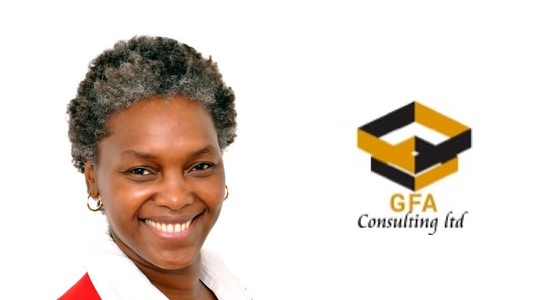Carole Ramella, the Founder and Managing Director of GFA Consulting Ltd, a corporate finance boutique based in Ghana and specialized in fundraising advisory (www.gfa-consulting.com) shares her thoughts on the challenges African SMEs still face when they need to access finance.
Despite driving the growth of African economies and contributing to more than 50% of the workforce, African SMEs still face major challenges when they need to access finance. In a COVID-19 world where it will be more and more difficult to access bank loans, competition for private equity money will become fiercer; you should therefore ensure that your business is investor-ready if you want to stand a chance at attracting money from private equity funds.
The rules are set by those with the money!
As a fundraising advisor, I have noticed two common misconceptions with many African businesses that look to raise funding from private equity funds: one is the idea that their project should be funded because it is great, and the second idea is that funding should be available quickly, in a matter of a few weeks or months. This shows that many businesses misunderstand two fundamental features of private equity investors: they arbitrage between dozens of great projects, and they will never complete their appraisal process faster or take shortcuts because a business urgently needs money. In fact, fundraising is a supply industry, where those with the money fix the rules and follow very strict processes not only to select businesses, but to complete their appraisal.
What does that mean for your business?
- First, that this is a process you should not embark on alone, because fundraising requires specific skills and a deep understanding of what investors are looking for and how information should be presented to them; this is why you should work with reputable fundraising advisors to support you with your fundraising process;
- Second, that you need to plan your fundraising process; it is not rare for private equity investors to take nine to twelve months to fully close any investment in Africa; this means that you should never be in a hurry when embarking on a fundraising journey;
- Third, that the first phase of your fundraising plan should be to ensure that you tick the boxes of the investor to avoid wasting your precious time and money; you don’t want to go through the process of developing whole business plans and investment proposals, just to find out that your project does not correspond to what investors are looking for in the first place. But then, how will you know what investors are looking for? Back to point one!
Why it is worth investing in your own investment-readiness assessment
When assessing whether to invest or not in a project, equity investors, and especially private equity funds, are looking for four critical elements:
- Whether the business has the right systems in place to manage growth (few investors are interested in distressed companies);
- Whether the business has quality teams that can execute a growth business plan;
- Whether management has put in place the appropriate governance systems to ensure that decisions are made in the best interest of the company; and
- Whether the project for which the business is looking to raise funding aims at growing the business in an ambitious yet credible way.
As mentioned previously, the first objective of the self-assessment of your investment-readiness is to increase your chances of successfully closing your fundraising process. Unfortunately, if they knew how investors think and what they are looking for, no African business would struggle to attract funds. You should therefore work with fundraising advisors who have proven methodologies or tools to assess your likelihood of attracting funding.
Also, the self-assessment is a great opportunity for you to step back, reflect on the way you operate your business, and understand how this can have an impact on the fundraising process, particularly now that traditional lenders are more reluctant to provide loans to businesses.
Assessing your investment-readiness will also help you identify all the elements in your organization that could be problematic for investors. For instance, a weak level of governance, a poor financial organization or doubt on the quality of your teams could be considered as deal-breakers for some investors. In this respect, a proper investment-readiness process will help you identify the weaknesses of your organization and improve them before you even approach investors.
For all the above reasons, you should not consider the investment-readiness assessment as a cost, but rather as an investment whose return is at worst a clear understanding of how you can improve your operations, and at best a successful fundraising process.
The Business Diagnostic, a proprietary tool to evaluate where you stand
GFA Consulting developed the Business Diagnostic in 2014 and has since used that tool to complete investment-readiness assessments as part of all its fundraising mandates to raise debt or equity. To date, this represents more than 20 companies in eight different countries in West and Central Africa, in a diversity of sectors.
The Business Diagnostic consists of three to four individual interviews of some of the company’s senior management (CEO, CFO, Operations, Deputy CEO, General Manager, Marketing and Sales, etc.). Each interview lasts four hours maximum, leading GFA Consulting to get a good insight into how your company is organized and which elements of your organization could be a concern for potential investors. Managers are interviewed around six topics that are critical to private equity investors, namely Cash Management, Risk Management, Financial Information, Governance, Management of People and Project’s Credibility.
Upon completion of the diagnostic interviews, your company is rated using the proprietary scorecard developed by GFA Consulting. The score allows us to identify your company positioning and its impact on the fundraising:
- Tier 1 companies that achieve a scoring of 80% and above are likely to raise funding in the short term (within a year) given the quality of their organization;
- Tier 2 companies that achieve a scoring of 70% to 80% can raise funding in the short term if some medium priority recommendations are implemented to improve operations;
- Tier 3 companies that achieve a scoring of 60% to 70% may raise funding within 12 to 18 months if some key high priority and medium priority recommendations are implemented.
If your company does not reach a scoring of minimum 60%, you are not likely to attract interest from investors in the short term and you should therefore consider postponing your fundraising plans and restructuring your operational processes. Usually, we do not proceed with our fundraising mandates in such situations.
Achieving investment-readiness
Within three to four weeks of the interviews, we share a diagnostic report that details our recommendations to improve your company’s investment profile. Recommendations don’t need to be fully implemented prior to approaching investors; sometimes, putting the company on the right path and taking the right actions can create a positive bias with investors. For instance, it can make a great difference for investors if you recruit a credible auditor to have those financial statements finally audited, even if the audit process is not completed by the time you start approaching investors.
Implementing recommendations does not necessarily cost money, but it can make the difference between “Thank you, but no thank you” and “Let’s talk”! This is the reason why we will only make recommendations that we can help implementing within three to six months and that have a decisive impact on the way investors will consider your investment opportunity. The bottom line is to have the conversation starting, especially when you know that some funds receive more than a hundred investment requests a year and only invest in two!
Entrepreneurs need to understand that the fundraising process must be carefully planned, both in terms of time and financial resources, to make it successful. Focusing efforts in ensuring that your business is investor-ready will not necessarily guarantee that you will access funding, but it will certainly increase your chances of interesting investors. In these current pandemic times where so many businesses will be thirsty for fresh funds, the Business Diagnostic may help you stand out.

Carole Ramella is Founder and Managing Director of GFA Consulting Ltd, an independent corporate finance, business support, tax and legal services company based in Accra, Ghana.
After experience with Paribas and Arthur Andersen in France and Italy, Carole joined Gras Savoye, an insurance brokerage company, to develop the M&A practice for private equity and industrial investors. She then joined Duff & Phelps before moving to Ghana in early 2011 and founding GFA Consulting.
Carole is a graduate of NEOMA Business School (ex-Reims Management School) and holds an MBA from INSEAD. She is a member of the Investment Committee of I&P, a French private equity firm, and is a Foreign Trade Advisor for the French Government.


